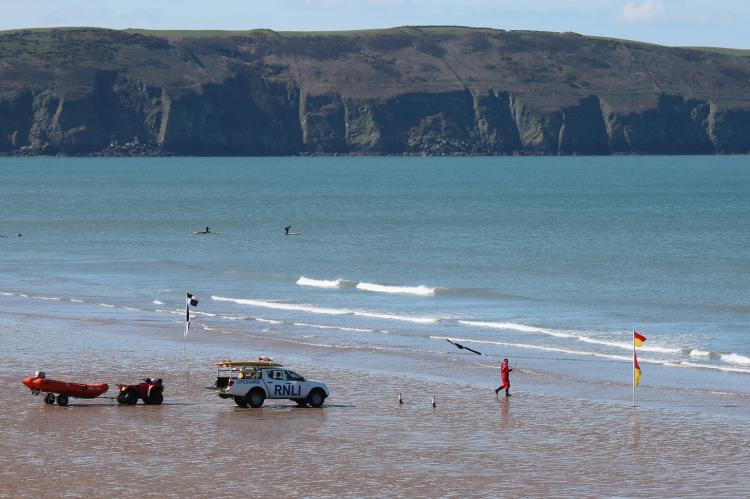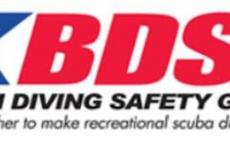BDSG issues a statement regarding British recreational diving
The British Diving Safety Group held an extraordinary online meeting on Tuesday 12 May 2020 to discuss the ongoing COVID-19 crisis.
A number of medical professionals and non-diving agencies attended, including the RNLI and the HSE, along with representatives from the dive training organisations. The purpose of the meeting was to determine how the latest changes in government guidance may apply to the recreational and technical UK diving community.
Infrastructure needs establishing
The consensus of the meeting was that the infrastructure to safely support recreational and technical diving activities are still lacking and requires more time to re-establish itself. Contamination risks remain too high during the preparation for diving and could put undue pressure on businesses who must operate safely and within the law.
More importantly, should emergency support be necessary, this would place an unacceptably high burden on rescue services and medical treatment facilities at a time when they are already stretched. For instance if an asymptomatic diver should need rescuing by the RNLI, and one or a number of the crew then catch the coronavirus, the whole lifeboat station will have to be quarantined.
With regret, we must encourage UK divers to act responsibly and not go diving. BDSG
The consensus view of all concerned was that whilst the BDSG respects everyone’s desire to return to diving activities as soon as possible, it is too early to restart diving in the UK. Dai Atkins, BSAC National Diving Officer stated on behalf of the BDSG "We should be considerate of the impact any activity could have until such a time when the supporting infrastructure can safely operate at full capacity and in line with government guidance."

With regret, the BDSG must encourage divers to act responsibly and not go diving, however safe it may seem to do so. The BDSG will continue to work together to provide suitable guidance to support a planned return to safe diving as and when the time is right.
The BDSG will consult further when changes are made to UK Government guidelines.
Fact File
The British Diving Safety Group (BDSG) was formed in 2002 to promote safe diving practices amongst the British sport diving community.
It is chaired by the RNLI. The group has broad representation, with all of the UK diver training agencies, the HSE and the MCA having a seat at the table.
These organisations regularly meet in order to work towards a common goal; to make diving safer. By sharing and analysing incident data, devising safety initiatives and then promoting them to divers, the group has a broad influence on the recreational diving community.
The comprehensive nature of the BDSG, reflecting as it does all of the significant interests in the British sport diving scene means that it is uniquely positioned to significantly influence diving safety.
BDSG Members
The members are
- BHA (British Hyperbaric Association)
- BSAC (British Sub Aqua Club)
- DAN Europe (Divers Alert Network)
- DDRC Healthcare (Diving Diseases Research Centre)
- DDST (Defence Diving Standards Team)
- Diving Ireland (Irish Underwater Federation)
- GADAP (Global Association of Diving Assistance Providers)
- GUE (Global Underwater Explorers)
- HSE Diving Inspectorate (Health & Safety)
- IANTD (International Association of Nitrox and Technical Divers)
- IDEST (Inspectorate for Diving Equipment, Servicing and Testing)
- MCA (Maritime and Coastguard Agency)
- PADI (Professional Association of Diving Instructors)
- PSAI Europe (Professional Scuba Association International)
- RAID UK & Malta (Rebreather Association of International Divers)
- RNLI (Royal National Lifeboat Institute)
- SAA (Sub Aqua Association)
- ScotSac (Scottish Sub Aqua Club)
- SITA (Scuba Industries Trade Association)
- Skindeep (professional dive charter boat)
- SSI (Scuba Schools International)
- TDI SDI (Technical Diving International / Scuba Diving International)
- UK DMC (Diving Medical Committee)



